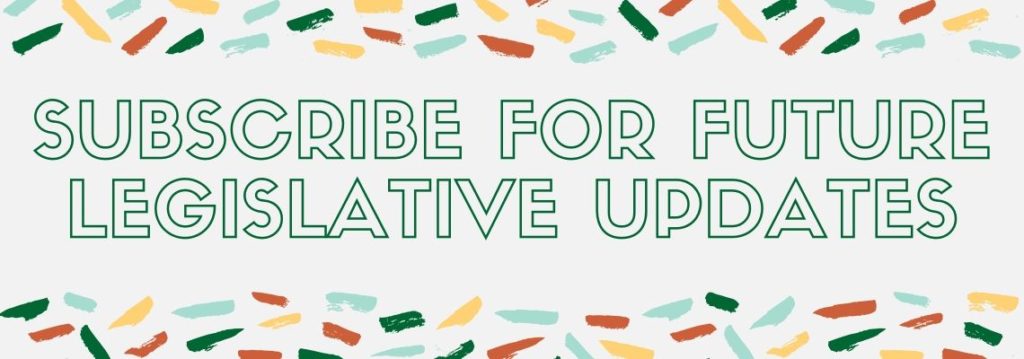While these are strange times for all of us, the one constant you can expect in California is rapidly changing rental housing legislation… and even in a pandemic, this is no exception. With a mixed bag of potentially detrimental and positive bills, make sure you stay on top of these proposed laws in California.
While these are strange times for all of us, the one constant you can expect in California is rapidly changing rental housing legislation… and even in a pandemic, this is no exception. With a mixed bag of potentially detrimental and positive bills, make sure you stay on top of these proposed laws in California.
The Dreaded AB 828
AB 828 would have (when originally written) mandated that the courts reduce rent by 25%, but it has thankfully been amended since then and removed that provision.
The current version of the bill does a few things. First, it would prohibit foreclosures and suspend the sale of tax-defaulted rental properties during the COVID-19 related state of emergency (plus 15 days after the emergency has ended). County recorders would be prohibited from issuing a notice of default, sale, or a trustee’s deed upon sale during this time. It would also ban courts from accepting a complaint in a foreclosure action.

Secondly, AB 828 would halt evictions, by prohibiting courts and the county sheriff from accepting unlawful detainer actions or executing a writ of possession during the state of emergency and 15 days after. If a tenant is unable to stay current on their rent due to COVID-19 (hence the unlawful detainer action), the court could require the renter to make monthly payments beginning the next calendar month. If passed, this would be in effect until January 1, 2022.
The California Apartment Association warns that AB 828 is still problematic without the 25% rent reduction with provisions like:
- Limited proof is required for renters to showcase they faced a COVID hardship
- It protects nuisance renters by allowing them to initially ignore unlawful detainer complaints and remain in the unit
- Rental property owners will be required to demonstrate economic hardships in order to collect rent timely
The Rental Registry is Back and at it Again
AB 2406 would require rental property owners with 5 or more units to submit information about their properties (including location, ownership, and occupancy) to the state. This includes if the property accepts rental assistance payments from federal or state programs. This information could be subject to verification by the state before becoming publicly available. If passed, forms for each property would need to be submitted before April 1, 2022.
Security Deposit Requirement Changes
Rather than paying the full security deposit amount before move-in, AB 3260 would allow renters a payment alternative. If passed as is, new tenants would be able to pay a security deposit over a six-month period (unless the lease term is for less than 9 months, in which the number of monthly installments would be agreed upon by the owner and tenant) or obtain a security deposit insurance policy to cover damages.

The Dreaded AB 828
AB 828 would have (when originally written) mandated that the courts reduce rent by 25%, but it has thankfully been amended since then and removed that provision.
The current version of the bill does a few things. First, it would prohibit foreclosures and suspend the sale of tax-defaulted rental properties during the COVID-19 related state of emergency (plus 15 days after the emergency has ended). County recorders would be prohibited from issuing a notice of default, sale, or a trustee’s deed upon sale during this time. It would also ban courts from accepting a complaint in a foreclosure action.
Secondly, AB 828 would halt evictions, by prohibiting courts and the county sheriff from accepting unlawful detainer actions or executing a writ of possession during the state of emergency and 15 days after. If a tenant is unable to stay current on their rent due to COVID-19 (hence the unlawful detainer action), the court could require the renter to make monthly payments beginning the next calendar month. If passed, this would be in effect until January 1, 2022.
The California Apartment Association warns that AB 828 is still problematic without the 25% rent reduction with provisions like:
- Limited proof is required for renters to showcase they faced a COVID hardship
- It protects nuisance renters by allowing them to initially ignore unlawful detainer complaints and remain in the unit
- Rental property owners will be required to demonstrate economic hardships in order to collect rent timely
The Rental Registry is Back and at it Again
AB 2406 would require rental property owners with 5 or more units to submit information about their properties (including location, ownership, and occupancy) to the state. This includes if the property accepts rental assistance payments from federal or state programs. This information could be subject to verification by the state before becoming publicly available. If passed, forms for each property would need to be submitted before April 1, 2022.
Security Deposit Requirement Changes
Rather than paying the full security deposit amount before move-in, AB 3260 would allow renters a payment alternative. If passed as is, new tenants would be able to pay a security deposit over a six-month period (unless the lease term is for less than 9 months, in which the number of monthly installments would be agreed upon by the owner and tenant) or obtain a security deposit insurance policy to cover damages.
Potential Good News – Property Tax Reassessments
In what could potentially be good news, SB 1431 would authorize local governments to reassess property taxes based on financial losses due to “a misfortune or calamity in an area or region subsequently proclaimed by the Governor to be in a state of emergency.” If passed as is, considerable damages could be the loss of rent due to the virus or by other COVID-19 renter protections like rent freezes.
Statewide Emergency Rental Assistance
SB 1410 would establish a COVID-19 rental assistance program. Households eligible for rental assistance payments would have to demonstrate an inability to pay all or part of the household rent due between April 1, 2020 and December 31, 2020 due to COVID-19. Rental owners who consent to participate in the rental assistance program could get at least 80% of the unpaid rent, however, owners would have to consent to waiving the remaining rent owed and agree to cease charging late fees for the rest of the year. Rental assistance payments would cover no more than 7 months of missed or insufficient rent payments.

Potential Good News – Property Tax Reassessments
In what could potentially be good news, SB 1431 would authorize local governments to reassess property taxes based on financial losses due to “a misfortune or calamity in an area or region subsequently proclaimed by the Governor to be in a state of emergency.” If passed as is, considerable damages could be the loss of rent due to the virus or by other COVID-19 renter protections like rent freezes.

Statewide Emergency Rental Assistance
SB 1410 would establish a COVID-19 rental assistance program. Households eligible for rental assistance payments would have to demonstrate an inability to pay all or part of the household rent due between April 1, 2020 and December 31, 2020 due to COVID-19. Rental owners who consent to participate in the rental assistance program could get at least 80% of the unpaid rent, however, owners would have to consent to waiving the remaining rent owed and agree to cease charging late fees for the rest of the year. Rental assistance payments would cover no more than 7 months of missed or insufficient rent payments.
Multifamily Development: Hotel & Motel Conversions
AB 2580 would streamline the process of converting existing hotel and motel structures into multifamily housing. To qualify under this new process (if passed), a hotel/motel conversion proposal would need ministerial approval and would have to have at least 15% of the proposed units reserved for lower-income households and 5% for extremely low-income households. The proposed structure would have to be vacant for at least 6 months prior to application submission.
On the Local Level
As some counties start to reopen and others sit tight with stay-at-home orders, keep your eyes peeled on both State, City, and County (cities and counties can pass separate protection ordinances and orders) laws. Things are changing rapidly and individually.
- Evictions:
Per the California Judicial Council on April 6th, nearly all eviction cases are banned in California. Many local governments, if not most, have also adopted their own eviction bans for those affected financially by COVID-19.
- Rent Freezes:
Currently some cities like Los Angeles have frozen rent on locally rent-controlled housing. Counter to the Costa-Hawkins Act, the city of Santa Ana voted on a rent freeze ordinance that applies to all tenants and housing.
- Rental Assistance:
Some cities like Anaheim are moving to create rent assistance programs, which would help cover unpaid rent accrued during the pandemic.
While it’s tough to keep up with legislative changes on both a local and state-wide level as counties begin to open back up, we’ll try to do our best to help keep you informed and ready for whatever happens within the rental housing industry. Just make sure you subscribe to hear about it when it happens!
Multifamily Development: Hotel & Motel Conversions
AB 2580 would streamline the process of converting existing hotel and motel structures into multifamily housing. To qualify under this new process (if passed), a hotel/motel conversion proposal would need ministerial approval and would have to have at least 15% of the proposed units reserved for lower-income households and 5% for extremely low-income households. The proposed structure would have to be vacant for at least 6 months prior to application submission.
On the Local Level
As some counties start to reopen and others sit tight with stay-at-home orders, keep your eyes peeled on both State, City, and County (cities and counties can pass separate protection ordinances and orders) laws. Things are changing rapidly and individually.
Evictions:
Per the California Judicial Council on April 6th, nearly all eviction cases are banned in California. Many local governments, if not most, have also adopted their own eviction bans for those affected financially by COVID-19.
Rent Freezes:
Currently some cities like Los Angeles have frozen rent on locally rent-controlled housing. Counter to the Costa-Hawkins Act, the city of Santa Ana voted on a rent freeze ordinance that applies to all tenants and housing.
Rental Assistance:
Some cities like Anaheim are moving to create rent assistance programs, which would help cover unpaid rent accrued during the pandemic.
While it’s tough to keep up with legislative changes on both a local and state-wide level as counties begin to open back up, we’ll try to do our best to help keep you informed and ready for whatever happens within the rental housing industry. Just make sure you subscribe to hear about it when it happens!










One Reply to “What You Should Know About California Rental Housing Bills”
I wish I knew what CAPTCHA is and where to find it.